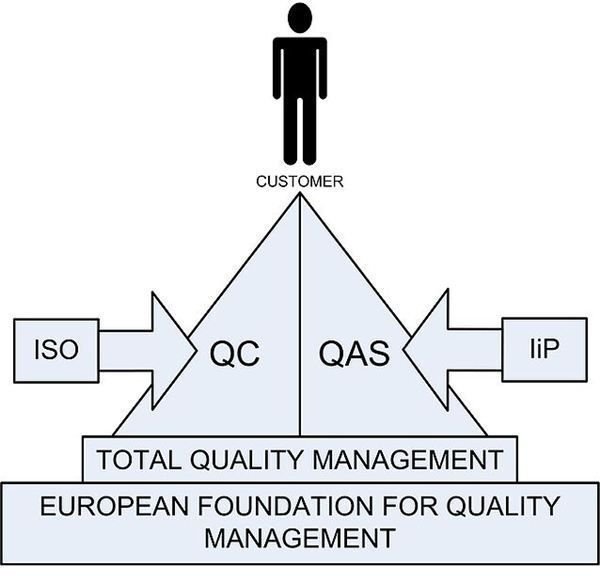Analysis of TQM Quality Concepts: Following the Top 8 Principles of TQM
What is TQM?
TQM, the acronym for Total Quality Management.TQM is a system used by customer centric organizations which involves all its employees in a process of continuous improvement.TQM is essentially a management practice which focuses on meeting or exceeding customer expectations. To achieve continuous improvements in the business process, a TQM centric organization focuses on process measurements and controls. Thus, it is an integrated approach to improve productivity by using both qualitative and quantitative concepts.Here is an analysis of TQM quality concepts and how these concepts help improve customer satisfaction.
Concept 1 - Be Customer Focused
TQM is based on the belief that quality is determined by the customer. The objective of TQM is to attain 100% customer satisfaction. Customers include both internal and external customers. Several measures can be taken to improve quality such as an improved process management or better training for employees, etc. But, the final result of the product/service is measured by the customers themselves.
Concept 2 - Ensure Total Employee Involvement
TQM focuses on a work environment wherein the employees feel free to discuss their ideas. This ensures an empowered workplace and generally happier employees. It eventually results in better quality.
Concept 3 - Be Process Centered
TQM focuses on a process centered approach in most organizations. Following a streamline process reduces the tendency for errors. TQM has an ultimate goal of zero defects. Focusing on process improvement plans helps to achieve this.
Concept 4 - Integrated Approach
TQM is basically an integrated management system. All the employees should be aware of the mission and vision of the organization. Also,the improvement decisions are not just made by the top management, but all stakeholders are provided the opportunity to express themselves during the decision making phases. This ensures less resistance to change and a happier work environment.
Concept 5 - Continuous Improvement
TQM also focuses on continuous improvement. An organization should always continue to innovate its processes. There is never an end to improvement. This concept focuses on making incremental improvements from time to time. It has been found that continuous improvements to business processes has resulted in drastic improvement of productivity when considered over a period of time.
Concept 6 - Fact-Based Decision Making
The decision making process should be based only on facts and on data. It should never be based on emotions or personalities.
Concept 7 - Communication
Effective communication among the stakeholders is key to the success of a business. To implement TQM successfully in an organization, it should be supported at all levels of the firm–from the CEO to the low-level hourly paid employee.The managers and employees should collaborate across departments and business units, and even among customers and suppliers to identify areas of process improvement. Thus, communication is a key to TQM success.
Concept 8 - A Strategic and Systematic Approach
Finally in our analysis of TQM quality concepts, organizations should have a strategic plan in place which integrates quality as its primary component.
Image Source
https://commons.wikimedia.org/wiki/File:Quality_model_(inverted).jpg
